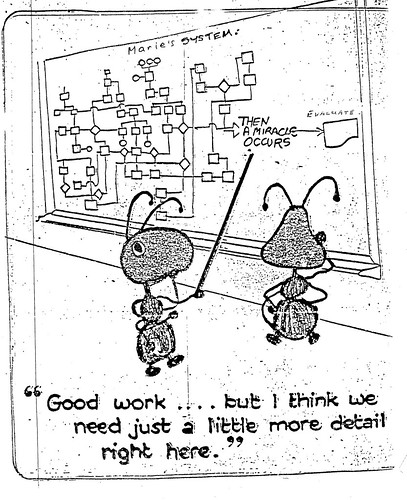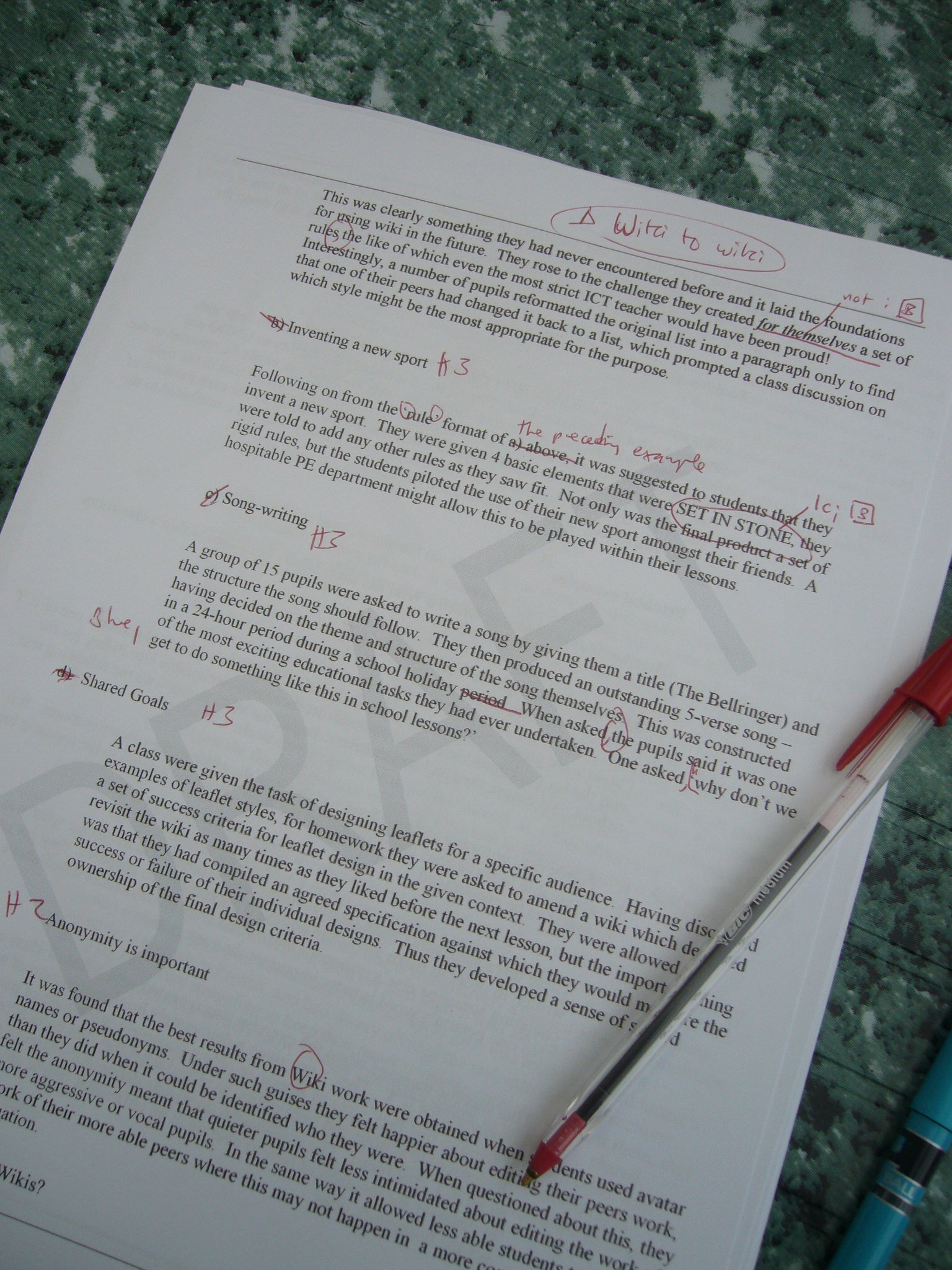I think it's great that we have visionaries and big thinkers, and I enjoy working with such people. (After all, I consider myself to be one of them!) But what we appear to have a deficiency of is people who pay attention to detail. I mean real, nitty-gritty detail. The small stuff.
But that is the stuff that makes or breaks a project or an enterprise. Don't believe me? Next time you're somewhere that seems a bit grubby, though you can't quite put your finger on it, have a look at the details. In a hotel lobby, for example, that is gleaming, and yet.... Have a look in the corners. You'll probably see that it hasn't seen a broom in ages. Or the wallpaper: there's that slight nick near the light switch....
I'm sure that we pick up on all these things on a subliminal level, but it all creates an impression. For me, when it comes to projects, such as events, or publications, the small stuff really does matter:
- I once spent two hours trying to work out why my spreadsheet covering a project of £100,000 was 57 pence out. I figured that while the 57 pence didn't matter, it could just be symptomatic of a much larger problem. I was right, in a sense. One of the formulae was rounded up, and that was compounded as its result worked its way through the spreadsheet. It wasn't a huge deal, but it was an anomaly. I don't like anomalies.
- I wish one of my co-workers had been as assiduous. He may then not have needed to come to me as white as a sheet to tell me that he had double-counted an income stream, with the result that rather than have £30,000 to play with, we had to make up a shortfall of £30,000.
- A student once sent me an article for publication in the Computers in Classrooms newsletter. The title of the piece was 'Article for Computer Weekly'. I had to waste time asking him if he'd sent me a recycled article or had merely put the wrong title on the top. We got that sorted out, but he blew it when he told me he hadn't had time to spellcheck it or anything. Well, if he can't be bothered to take a pride in his work, why should I be lumbered with the job? I suggested he re-send the article when he does have the time.
- I once failed to land a contract I thought was in the bag. I asked for feedback. They sent me an email in which they said: "It was a minor thing that kinda wasn't a minor thing: you referred to the project as TCB, when it is actually GBC" (an entirely different project that was on my mind because I'd been working on it).
We're all human, we all make mistakes. But I think there are steps that we can and must take if we are to ensure that the mistakes, and their impact if they do occur, are minimised:
- Pay attention to detail. Don't make the mistake shown in the cartoon here(sorry, I don't know who the copyright owner is)

- If it's a written piece of work, spellcheck it, proofread it, and get someone else to read it.
- If it's a spreadsheet, run it with some numbers you can handle in your head. For example, if I am messing about with percentages, I'll insert the number 100 in the appropriate cell. If the spreadsheet tells me that 50% of 100 is 127.8, I'll know something's amiss!
- If you're citing a website, check that it still works. OK, it may be taken offline three seconds after you've sent the email, but you can't account for that. All you can do is check and double-check as much as you can before making your statement or recommendation.
I'm not asking for perfection, just for people to sweat the small stuff. It's important.
In fact, you could say that the small stuff is pretty big.






